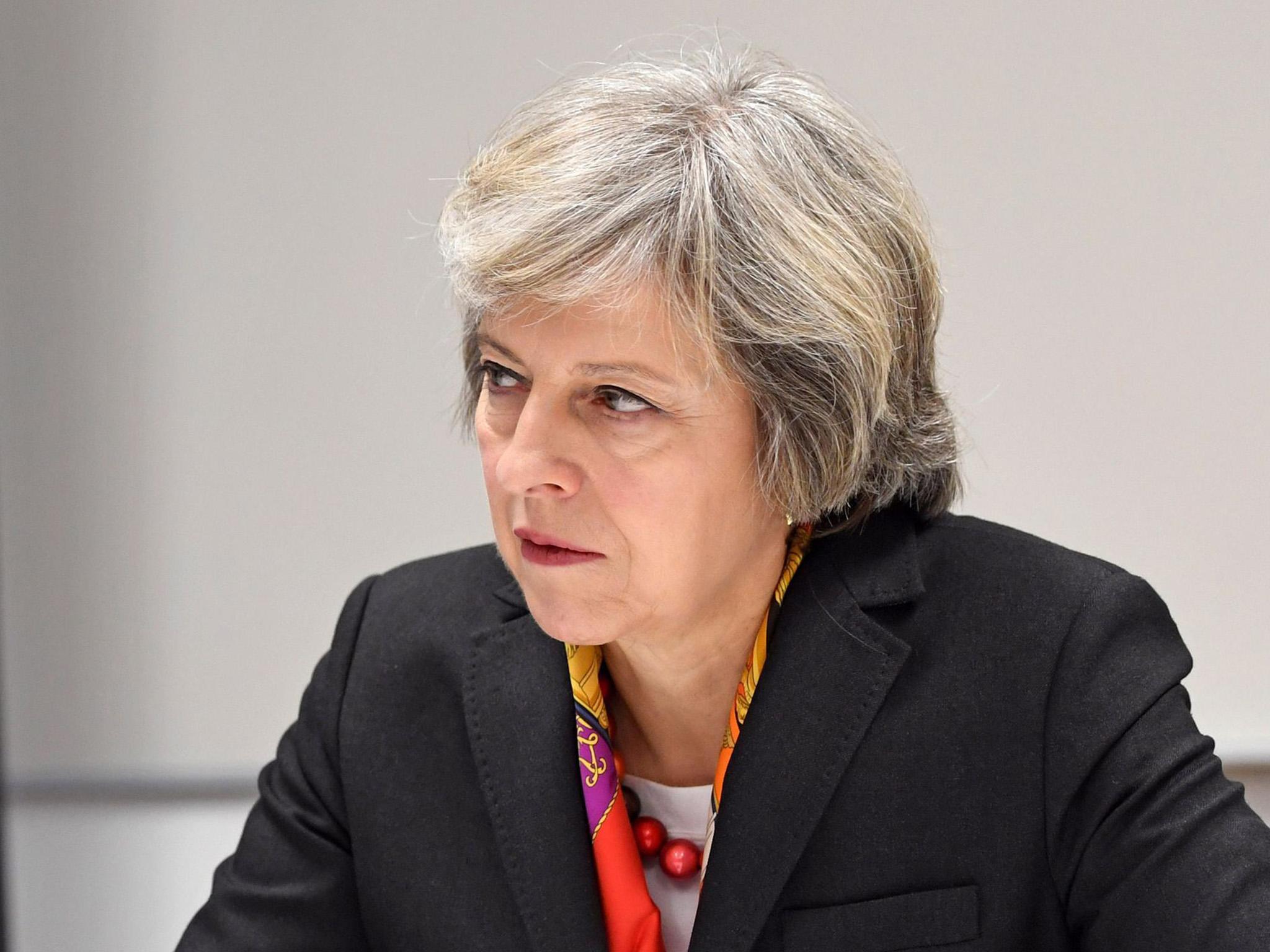Theresa May is set to announce revolutionary social reform policies – this could be the moment she silences her critics
She insists that the state has a significant role to play in alleviating the everyday injustices faced by people who do not qualify for benefits. Announcing shiny new policies is the temptingly easy part of governing. Much more difficult is delivering the same


Your support helps us to tell the story
From reproductive rights to climate change to Big Tech, The Independent is on the ground when the story is developing. Whether it's investigating the financials of Elon Musk's pro-Trump PAC or producing our latest documentary, 'The A Word', which shines a light on the American women fighting for reproductive rights, we know how important it is to parse out the facts from the messaging.
At such a critical moment in US history, we need reporters on the ground. Your donation allows us to keep sending journalists to speak to both sides of the story.
The Independent is trusted by Americans across the entire political spectrum. And unlike many other quality news outlets, we choose not to lock Americans out of our reporting and analysis with paywalls. We believe quality journalism should be available to everyone, paid for by those who can afford it.
Your support makes all the difference.The speech on social reform due to be given by Theresa May on Monday is remarkable, especially when placed in its historic context. She stated in a newspaper article published yesterday that her vision amounts to creating “the shared society”, defined as one that “doesn’t just value our individual rights but focuses rather more on the responsibilities we have to one another”. From the 1940s to the 1960s, there was no sharing between the government and the governed. Rather the doctrine of the day was that governments know best. Nonetheless in Britain this produced the Welfare State and in the United States, Roosevelt’s New Deal.
To some extent Theresa May harks back to this period, the first Conservative leader to do so since Margaret Thatcher entered 10 Downing Street in 1979. For May wrote that the Government’s job is to encourage and nurture “the social and cultural unions represented by families, communities, towns, cities, counties and nations” and “to correct the injustice and unfairness that divides us wherever it is found.”
In its purest form, the notion that governments know best turned out to have severe disadvantages. It was often accompanied by high taxation. Excessive regulation stifled initiative and entrepreneurship. In any case the social revolution of the 1960s, with its emphasis on the rights of individuals to express themselves freely, didn’t sit well with relying on the state to provide.
So there inevitably came a reaction: a Conservative revolution led by Thatcher and, across the Atlantic, by Ronald Reagan. The two leaders rejected the post-war consensus. Instead of governments knowing best, they believed that markets know best. State owned industries were privatised; the delivery of many public services was outsourced; the civil service was put on starvation rations. Famously Thatcher stated that “there is no such thing as society, there are only individuals and families”. In due course, inflation was conquered, economic growth was healthy and innovation flourished. After all, this is the generation that has produced the digital revolution.
May’s predecessors, including David Cameron’s governments, stuck more or less rigidly to a belief in markets knowing best. Yet once again, as with any creed that catches the imagination of politicians, serious problems arose. To give some examples, selling the national railways to private investors has hardly been a success while many outsourcing contracts have had to be terminated because of poor performance.
David Brooks, the New York Times commentator, put the matter well. He wrote: “First, the economy has gotten crueller. Technology is displacing workers and globalisation is dampening wages. Second, the social structure has atomised and frayed, especially among the less educated.”
It becomes clear from May’s article that she is also disenchanted. She refers disparagingly to a “laissez-faire liberalism” that “leaves people to get by on their own”. She argues that “people who are just managing – just getting by – don’t need a government that will get out of the way. They need an active government that will step up and champion the things that matter to them”. She insists that the state has a significant role to play in alleviating the everyday injustices faced by people who do not qualify for benefits.
From this premise will follow a number of policy proposals. The “despicable stigma” of those with mental health conditions will be tackled; there will be a house building drive and further emphasis on providing every child with a good school place.
Yes, but announcing shiny new policies is the temptingly easy part of governing. Much more difficult is delivering the same. Three years ago, for instance, two leading political scientists, Anthony King and Ivor Crewe devoted an entire book, 448 pages long, The Blunders of our Governments. The subject was the “exceedingly numerous” blunders that have been committed by British governments of all parties in roughly the three decades from the election of the Thatcher government to the fall of New Labour in 2010. The authors commented: “Most, perhaps all of them could have been avoided.” And since then, matters have got worse. The Civil Service has been slimmed down – and it has Brexit to handle.
Yet full marks to Theresa May for venturing where, for nearly 40 years, no Conservative predecessor has dared to go. Her sentiments are noble, but I repeat my warning – they are much easier to say than to carry out. I urge her to use the Treasury – not to second guess the plans of government departments – but ferociously to insist that best practice is followed.
Join our commenting forum
Join thought-provoking conversations, follow other Independent readers and see their replies
Comments